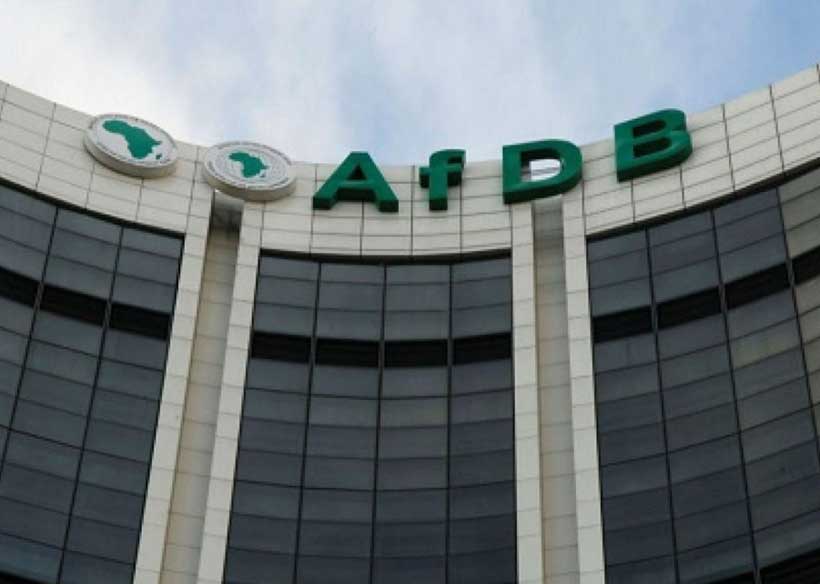AfDB Spotlights Mission 300, Energy Access Goals at AEF 2025 in Cape Town
The ERI remains one of the Bank’s most effective instruments for promoting regulatory excellence and encouraging data-driven policymaking across Africa’s power markets.

- Country:
- Ivory Coast
The African Development Bank Group (AfDB) is using its prominent platform at the 27th African Energy Forum (AEF 2025) in Cape Town, South Africa, to spotlight its transformative energy access agenda, headlined by the ambitious Mission 300 initiative—a joint effort with the World Bank aimed at connecting 300 million Africans to electricity by 2030.
The Forum, taking place from 17 to 20 June 2025, brings together a powerful coalition of governments, utilities, private sector leaders, regulators, and development partners. The event serves as a pivotal moment for AfDB to align stakeholders around the urgent goal of universal electricity access, while accelerating investment, policy reform, and regional collaboration in Africa’s energy sector.
“Mission 300 is about delivering hope, growth, and opportunity to hundreds of millions of people across the continent,” said Dr. Kevin Kariuki, AfDB Vice President for Power, Energy, Climate Change and Green Growth. “We are not just connecting homes to electricity—we are powering Africa’s future.”
Mission 300: Bold Commitments for a Brighter Continent
AfDB has pledged to deliver 50 million of the 300 million new connections under Mission 300 by 2030. The initiative gained substantial momentum at the Africa Energy Summit in Dar es Salaam earlier this year, where twelve African countries unveiled their National Energy Compacts, detailing investment blueprints and reform commitments to fast-track electrification.
This led to the adoption of the Dar es Salaam Declaration on Energy, which underscores coordinated action on three fronts:
-
Financing access
-
Policy and regulatory reform
-
Accelerated implementation strategies
These compacts signal growing political will to resolve Africa’s energy crisis, with Mission 300 emerging as a central pillar in regional development strategies.
A Decade of Impact: Scaling Access Across the Continent
From 2016 to 2025, AfDB invested $12.74 billion in Africa’s energy sector, resulting in:
-
Electricity access for over 28 million people
-
Construction and rehabilitation of nearly 40,000 km of distribution lines
-
In 2024 alone, the Bank:
-
Enabled the generation of 1,019 MW of new power
-
Constructed 2,326 km of transmission infrastructure
-
Connected 448,000 people to electricity
-
These figures demonstrate AfDB’s robust implementation of its “Light Up and Power Africa” agenda, part of its broader High 5s strategy, and aligned with the New Deal for Energy in Africa, which aims to achieve universal access to electricity across the continent by 2030.
Clean Energy Leadership: Transformational Projects Across Africa
The Bank is a leader in financing renewable energy mega-projects across Africa. Key achievements include:
-
Benban Solar Park, Egypt (1.5 GW): A landmark solar energy complex contributing 20% toward Egypt’s renewable energy target.
-
Noor Ouarzazate Solar Complex, Morocco: One of the world’s largest concentrated solar power facilities, powering over 2 million people and cutting 700,000 tonnes of CO₂ emissions annually.
-
Desert to Power Initiative: Spanning 11 Sahelian countries, this initiative aims to generate 10 GW of solar energy, reaching up to 250 million people and transforming one of the world’s most climate-vulnerable regions into a renewable energy corridor.
The Bank also supports critical financial instruments such as the Sustainable Energy Fund for Africa (SEFA) and the Facility for Energy Inclusion (FEI), designed to unlock capital for early-stage renewable projects and support small- and medium-sized energy developers.
Launch of the 2024 Electricity Regulatory Index (ERI)
A highlight of AEF 2025 is the release of the 2024 edition of the Electricity Regulatory Index (ERI), scheduled for 20 June. The ERI benchmarks regulatory environments across 43 African countries and five regional regulatory bodies, providing a powerful tool for guiding reforms, improving investor confidence, and promoting transparent governance in the energy sector.
The ERI remains one of the Bank’s most effective instruments for promoting regulatory excellence and encouraging data-driven policymaking across Africa’s power markets.
Investing in Africa’s Energy Future: From Utilities to Youth
As a lead sponsor of AEF 2025, the AfDB is actively participating in high-level sessions on:
-
Sustainable utility transformation
-
Regional power market integration
-
Clean energy financing mechanisms
-
The energy transition
-
Youth innovation and entrepreneurship
The Bank is also a key supporter of the Youth Energy Summit (YES!), engaging more than 4,000 young participants to foster the next generation of African energy innovators, entrepreneurs, and policymakers.
“Africa’s energy transformation will be driven not only by technology and investment, but by the creativity and determination of its youth,” said Kariuki. “We are proud to support YES! as a platform for empowering future leaders.”
Looking Ahead: A Vision for Inclusive and Sustainable Development
Through Mission 300, the Electricity Regulatory Index, and its extensive investment in clean energy infrastructure, the African Development Bank is reaffirming its continental leadership in powering Africa’s transformation. With over 600 million Africans still living without electricity, the challenge is immense—but so is the opportunity.
“This is a defining moment,” said Kariuki. “Africa’s energy future will be inclusive, green, and resilient. And the African Development Bank will be at the heart of that transformation.”
- READ MORE ON:
- African Development Bank
- Mission 300
- energy access
- AEF 2025
- renewable energy
- clean power
- Desert to Power
- Electricity Regulatory Index
- SEFA
- Africa energy transition
- World Bank
- youth innovation
- universal electrification
- sustainable development
- Dar es Salaam Declaration
- solar energy
- regional integration
- energy policy










